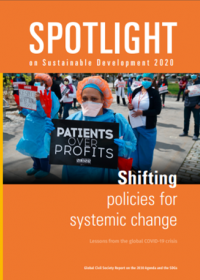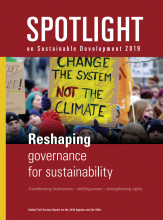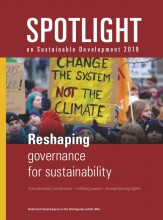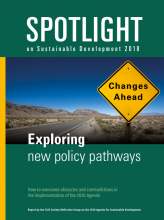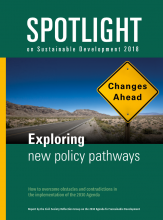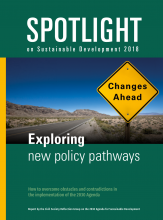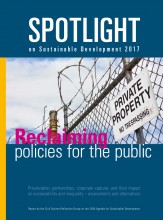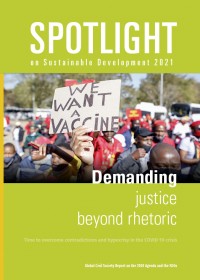
Time to overcome contradictions and hypocrisy in the COVID-19 crisis
Policy responses to the COVID-19 pandemic and resulting economic crisis have greatly exacerbated national and global inequalities. Blatant examples are the unfair distribution of care work, relying mainly on women and poorly remunerated if at all, and the global disparity in the distribution of vaccines.
So far more than 60 percent of people in high-income countries have received at least one dose of COVID-19 vaccine, but less than 2 percent have done so in low-income countries. In view of this dramatic disparity, the "leave no one behind" commitment of the 2030 Agenda for Sustainable Development remains hollow.
The dominant interests of rich countries, and corporate powers continue to dominate political decision-making. Given the urgency of the COVID-19 crisis and the other unresolved global problems, most notably the climate emergency, it is high time for transformative policies at all levels.
This is the key message of the Spotlight on Sustainable Development Report 2021. The report is launched on the first day of the Global Week to #ACT4SDGS by a global coalition of civil society organizations and trade unions.
According to the report, economic justice based on human rights can be achieved, but the trend towards privatizing, outsourcing and systematic dismantling of public services must be reversed. To combat growing inequality and build a socially just, inclusive post-COVID world, everyone must have equitable access to public services, first and foremost to healthcare and education.
To prevent the COVID-19 pandemic being followed by a global debt and austerity pandemic, governments must be enabled to expand their fiscal policy space and properly tax multinational corporations and wealthy individuals, many of whom pay virtually no income tax at all. Fundamental reforms in the global financial architecture, including a debt workout mechanism beyond piecemeal relief measures for debt servicing, are long overdue.
Barbara Adams and Jens Martens, Global Policy Forum (GPF)
Roberto Bissio, Social Watch
David Boys, Public Services International (PSI)
Chee Yoke Ling, Third World Network (TWN)
Kate Donald, Center for Economic and Social Rights (CESR)
Stefano Prato, Society for International Development (SID)
Ziad Abdel Samad, Arab NGO Network for Development (ANND)
Gita Sen and Maria Graciela Cuervo, Development Alternatives with Women for a New Era (DAWN)

